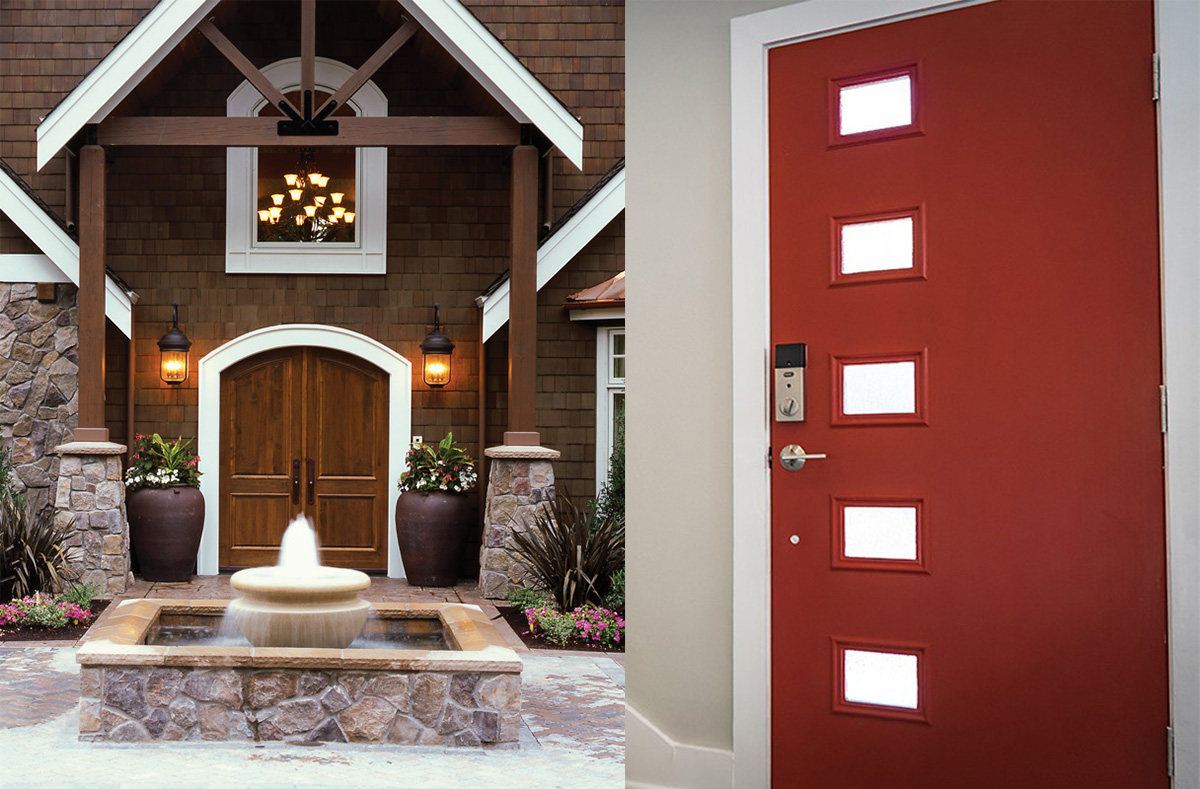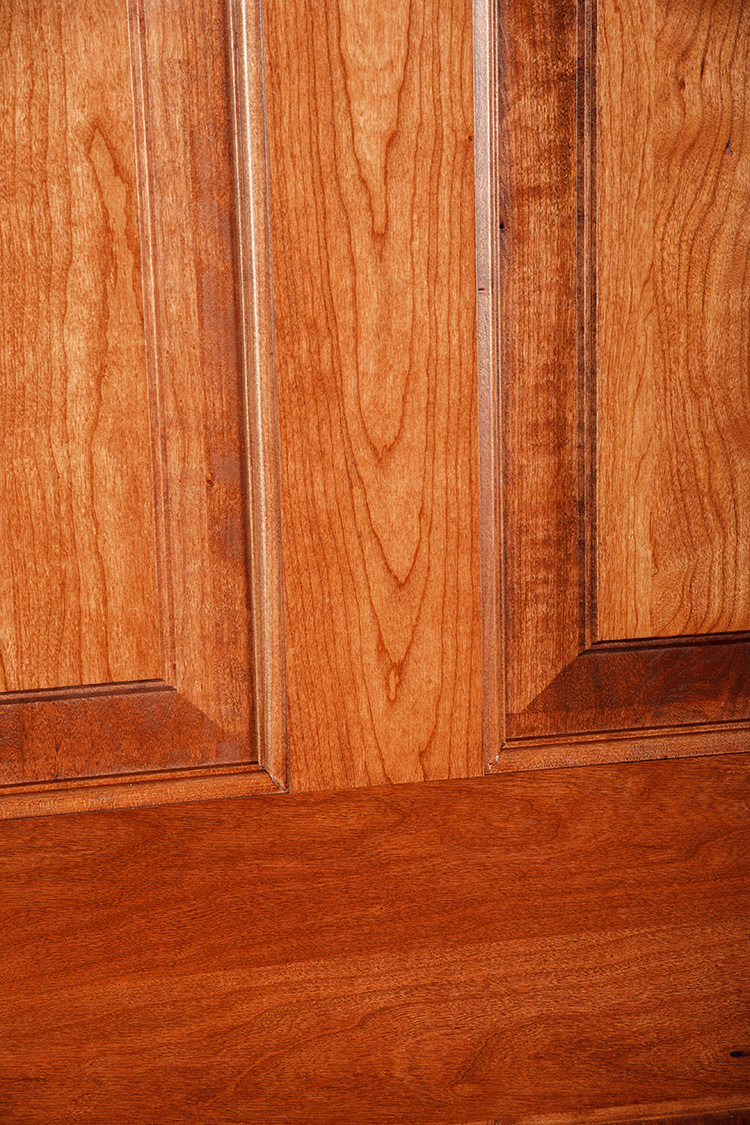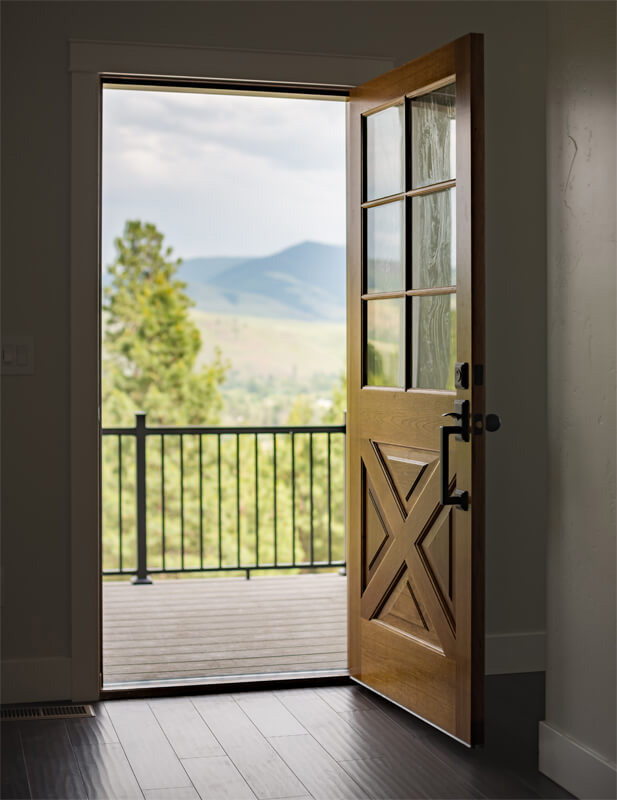
Updating the front entrance of your home can command attention from the street. Whether you’re working with a contractor to add a new door or taking a do-it-yourself approach, one of the first decisions you’ll make is deciding which door material to use. While there are many options to choose from, two of the most popular door types in the marketplace are exterior fiberglass doors and exterior wood doors.
Traditional wood doors are a longstanding favorite with their natural good looks and heralded craftsmanship. Fiberglass doors are new by comparison, but gaining traction amongst homeowners with their low upfront costs and ease of maintenance. Since each type of door has its advantages, how do you decide which one is best for your home? Let’s go through a few of the pros and cons of wood vs. fiberglass doors to help with your decision.
 Aesthetics
Aesthetics
The high-end look and warmth of solid-wood doors is almost impossible to mimic. While fiberglass door manufacturers have made improvements to better imitate the look of real wood, including more realistic wood-grain textures, they can’t quite copy the look to perfection. The doors are made with two large molded skins that sandwich a polyurethane foam core. The synthetic imitation still carries a glossy property that doesn’t change with stain, unlike the look of real wood. With Simpson wood doors, you can customize your door to any shape or size which can be difficult with fiberglass doors as the cost of a new mold can be very expensive. So when it comes down to it, if you are going for the look and feel of genuine wood why not choose the real thing?
Insulation
One of fiberglass’ main draws is that it has good insulating properties, improving the overall energy efficiency of the home. With new advances in the way wood doors are made, they can also provide beneficial insulation. For example, Simpson wood doors can be specified to include thermal technologies such as simulated divided lites (SDL), and WaterBarrier® technology to bolster insulation. It’s also important to note that doors are actually a very small part of an entryway’s surface area, and typically don’t allow significant amounts of warm air to escape. Heat is generally lost when air leaks around the sides of the door, not through the door itself. For this reason, with good hardware, sealing and proper care and finishing, wood doors can still provide sound insulation.
Wear and tear
Both fiberglass doors and wood doors have varying degrees of wear and tear prevention. A benefit of fiberglass doors is that they are typically dent-resistant and require little maintenance. However, they can falter under high impact and crack. Wood doors also resist denting well, and any scratches are easy to repair. Wood is generally susceptible to moisture, which was previously concerning in exterior applications. Fortunately, wood door manufacturers started addressing these concerns. For example, Simpson exterior wood doors now have the added option of being water-resistant through WaterBarrier® technology. Simpson’s Nantucket Collection™ doors go a step beyond. The wood doors combine weather-resistant species with a mortise-and-tenon construction technique, allowing it to resist extreme weather conditions. This helps to further preserve the door’s longevity and keep it looking its best.

Security
A myth about solid wood doors is that they are less secure than fiberglass doors. The truth is, both fiberglass doors and wood doors are designed to be resilient, durable and secure. With that being said, the frame and the hardware you choose to add to your door will make all the difference when it comes to the security of your home.
Making a purchasing decision
Though there are a lot of considerations to take into account when looking for the right door to grace your home, the bottom line is homeowners can now have the beauty of wood without compromising on performance. For another take on how to select the right door for your home, visit The Festive Farmhouse blog [LINK COMING] to understand her approach and considerations.





